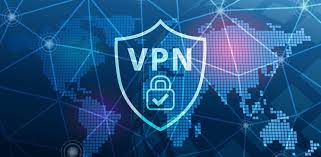Russians are using virtual private networks (VPNs) to get past the country's rising internet restrictions in the aftermath of the invasion of Ukraine.
VPNs can mask a user's online identity and location, allowing them to access restricted websites and services.
According to SensorTower figures for CNBC, between February 24, the day Russia began its invasion of Ukraine, and March 8, the top 10 VPN applications in Apple's App Store and Google Play Store in Russia had about 6 million downloads.
This was 1,500 per cent more than the top 10 VPN programs in the previous 13-day period.
Russia's internet has been controlled for years, despite the fact that major American platforms such as Facebook, Twitter, and Google have remained unrestricted in Russia, unlike in China.
These companies, on the other hand, have been threatened with closure, especially if they offer content that is perceived as unfavourable of the Kremlin.
On the other hand, President Vladimir Putin has recently attempted to strengthen his control over the internet. In 2019, Russia approved the "sovereign internet" law, which grants authorities vast authority to attempt to shut Russia's internet off from the rest of the world. The measure was meant to bolster Russia's defenses against cyberattacks, according to Russian officials at the time.
As the invasion advances, Russia intends to severely restrict access to international internet services. Facebook, which is owned by Meta, was disabled on March 4th, and access to Twitter was restricted.
Since March 5, demand for VPNs has surged by more than tenfold, according to Top10VPN, a review and analyticas website.
“As various companies have begun restricting access to their products in Russia, VPN apps have experienced a surge in adoption in the market as Russian users attempt to bypass these restrictions,” a SensorTower spokesperson said.
“The installs of VPN apps will likely continue to climb as restrictions continue ramping up. At the moment, marketplaces such as Apple’s App Store and Google Play are still available — however, that may very well change in the future.”
The weekly earnings of Surfshark, a VPN provider, have increased by 3,500 percent in Russia since February 24, with the largest gains coming on March 5 and 6, when Facebook was blocked.
“Such a rapid surge means that people living in Russia are actively looking for ways to avoid government surveillance and censorship,” a Surfshark spokesperson said.
In the meanwhile, Twitter has launched a Tor-based version of its website, which encrypts internet traffic and allows users to disguise their identities and avoid being monitored.
While Russia has taken efforts to prohibit services, an increasing number of IT companies have chosen to shut down.
A long list of technology companies has ceased selling or providing services in Russia this month, including Netflix and Apple.
(Source:www.businessinsider.co.za)
VPNs can mask a user's online identity and location, allowing them to access restricted websites and services.
According to SensorTower figures for CNBC, between February 24, the day Russia began its invasion of Ukraine, and March 8, the top 10 VPN applications in Apple's App Store and Google Play Store in Russia had about 6 million downloads.
This was 1,500 per cent more than the top 10 VPN programs in the previous 13-day period.
Russia's internet has been controlled for years, despite the fact that major American platforms such as Facebook, Twitter, and Google have remained unrestricted in Russia, unlike in China.
These companies, on the other hand, have been threatened with closure, especially if they offer content that is perceived as unfavourable of the Kremlin.
On the other hand, President Vladimir Putin has recently attempted to strengthen his control over the internet. In 2019, Russia approved the "sovereign internet" law, which grants authorities vast authority to attempt to shut Russia's internet off from the rest of the world. The measure was meant to bolster Russia's defenses against cyberattacks, according to Russian officials at the time.
As the invasion advances, Russia intends to severely restrict access to international internet services. Facebook, which is owned by Meta, was disabled on March 4th, and access to Twitter was restricted.
Since March 5, demand for VPNs has surged by more than tenfold, according to Top10VPN, a review and analyticas website.
“As various companies have begun restricting access to their products in Russia, VPN apps have experienced a surge in adoption in the market as Russian users attempt to bypass these restrictions,” a SensorTower spokesperson said.
“The installs of VPN apps will likely continue to climb as restrictions continue ramping up. At the moment, marketplaces such as Apple’s App Store and Google Play are still available — however, that may very well change in the future.”
The weekly earnings of Surfshark, a VPN provider, have increased by 3,500 percent in Russia since February 24, with the largest gains coming on March 5 and 6, when Facebook was blocked.
“Such a rapid surge means that people living in Russia are actively looking for ways to avoid government surveillance and censorship,” a Surfshark spokesperson said.
In the meanwhile, Twitter has launched a Tor-based version of its website, which encrypts internet traffic and allows users to disguise their identities and avoid being monitored.
While Russia has taken efforts to prohibit services, an increasing number of IT companies have chosen to shut down.
A long list of technology companies has ceased selling or providing services in Russia this month, including Netflix and Apple.
(Source:www.businessinsider.co.za)






